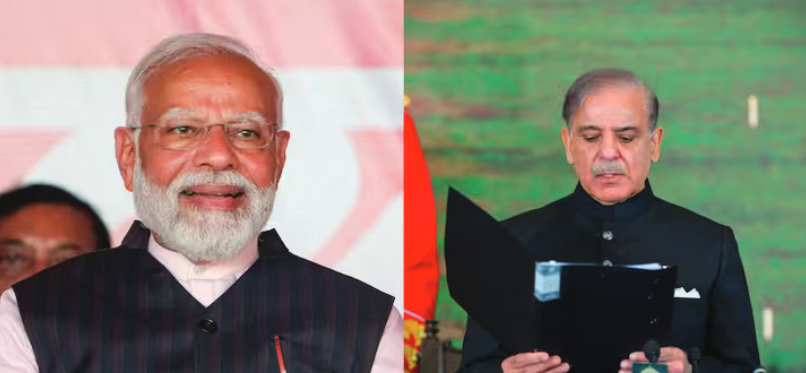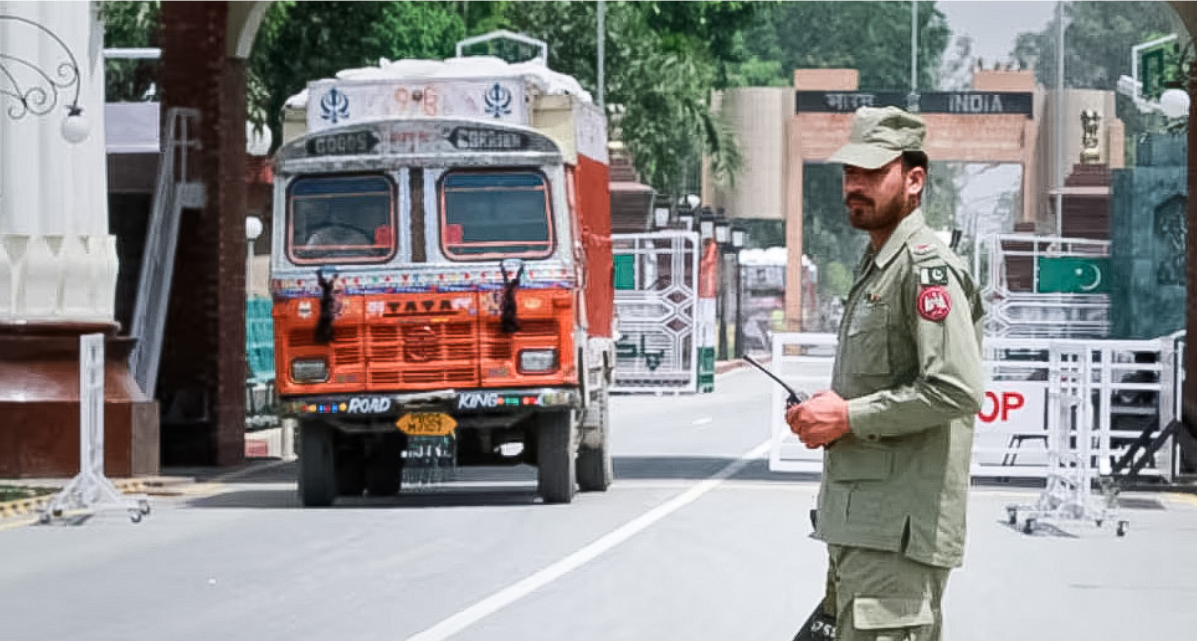As the newly elected government navigates the nation’s financial crisis, a significant development comes to light. Foreign minister Ishaq Dar was struck with an epiphany at a London press conference post his Energy Summit at Brussels as he made startling remarks. He called for reopening the Pakistan-India trade corridors as a solution to rectifying the nation’s balance ofpayment crisis. Relations between India and Pakistan reached an all-time low and trade has remained suspended since August 2019. This is owing to India’s controversial decision to abrogate Article 370 and revoke the autonomous status of Indian Occupied Jammu and Kashmir (IOJK). Subsequently, under the pressure of public sentiment and the PTI-led government whose political manifesto advocates for Kashmir’s freedom, Pakistan decided to revoke all relations with India. the mistake of speculating as cleared by the further statements made by the Pakistan Foreign Office a couple of days later that contradicted Dar’s statement and put such possibilities to rest. However, this debacle does beg the question: is easing of trade relations between the two subcontinental nuclear giants possible in the foreseeable future?
Historically, between 1947 to 1965, both nations entered fourteen bilateral trade agreements with nine branches of six Indian banks operating once upon a time in Pakistan alone. However, trade diplomacy came to an end in 1965 over the Pak-Indian war on Kashmir.
Kashmir has been a hotbed of tensions for both nations. It is a divisive point over which any rekindling of relations seems impossible. However, between 2011 and 2012 tensions eased as New Delhi removed a ban over Pakistani business operations within India. Pakistan also announced that it would grant ‘Most Favoured Nation’ (MFN) status to India in the hopes of normalising trade and lowering tariffs (trade barriers).
Furthermore, both agreed to loosen travel visa restriction – largely seen as to how Pakistan facilitated religious tourism for Indian Sikh pilgrims across the Kartarpur corridor. While relations in 2019 may have nose-dived after the revoking of Article 370, Pakistan still called for the building of ‘Darshan Resort’ to facilitate Sikh pilgrims at Gurdwara Darbar. This is not without purpose. Pakistan has hoped that trade and people-to-people diplomacy would act as s political leverage against India so that concessions on Kashmir would be agreed upon. However, this could only lead to greater disillusionment for Pakistan. This is because New Delhi only views trade relations as an end in themselves. It is purely for commercial purposes and not as a political tool that can be wielded for further negotiations on Kashmir.
Meanwhile, as Pakistan’s Foreign Minister Dar was making these wishful remarks at London that raised many brows, his Indian counterpart Jaishankar was busy hurling threats a few weeks prior at the Pakistani nation. Such bashing is a part of an active and deliberate ultra-nationalistic campaign by India’s
Prime Minister Narendra Modi to secure his vote bank among the more Hindu extremist elements within his nation. What is incredulous is that does Pakistan still hope to open trade relations despite an active campaign launched against it by its hostile counterpart?

However, one must still analyse the potential successes and risks of trade liberalisation with India. Had it been successful, the MFN status would have meant lower product costs and reduced trade barriers between both nations. Informal and illegal routes of trade via smuggling between India and Pakistan
would also be checked. This would eventually help the Pakistani government generate more legalised form of revenues by discouraging smuggling of goods. This would in turn open up a new trade avenue so that Pakistan’s trade deficit and balance of payment crisis would be managed.
Information technology transfers from India would revolutionise automobile, manufacturing, farming and wholesale industry. In a nation like Pakistan that is bordering food insecurity and unemployment, it would be a new lifeline. Furthermore, this would also help to politically alleviate allegations around import and export of cross-border terrorism on both sides.
Ultimately, public trust between both nations would improve. In such a scenario, dialogue on Kashmir could be a probability, if not a reality. What is crucial to remember is that such a possibility also rests on
other external conditions; including the degree of willingness of those who resume power within the Indian polity to be open to engagement.
However, the risks of such trade liberalisation are also exponential as stakeholders on both sides may not be as amiable and open to discussion. With Pakistan’s automobile industry being in its nascent stages, cheaper automobile parts from India could threaten the local industry. This would especially hold true if all trade protections were removed as expressed by IBA’s ex-Dean Ishrat Hussein.
Similarly, food wholesalers express similar concerns as opening up of agricultural trade with India would not serve Pakistan’s ‘comparative advantage’. Instead, Indian food whole salers would only flood the
nation with fruits and vegetables that the former is already sufficient with. This would only disadvantage the Pakistani farmers and agriculturalists. Thus, appeasing either stakeholders and taking note of their key interests is essential.
Thirdly, extremist and hostile pollical parties on either side could discourage trade friendly policies. This would hamper all forms of trade if any political skirmish and clash was to come about between either nation. However, on the plus side, any facilitation of trade between the two nations would be a gain not only for the two nations but for the entire region. It would also paralyse any dissenting voices against joint projects like CPEC or international platforms like BRICS, particularly from India.
Thus, skepticism still remains high. The notion of swiftly opening up the Pak-India trade corridor seems a distant dream. It is akin to dousing a wildfire with teaspoon of water since a legacy of misgivings and insecurity bound the trade decisions of both these neighbouring nations. However, instead of letting a crisis dictate the whimsical actions of our ministers, a genuine commitment and dialogue accompanied with a prudent course of action is still in our best future interest. For that to happen, Pakistan’s timing must be opportune.
Simultaneously, the opposing side must also leave some room open for negotiation instead of resorting to the bashing of the former – particularly in matters of trade and Kashmir. Hopefully this leaves some room for thought.
The writer is our Editorial Assistant and international relations, political economy analyst.



